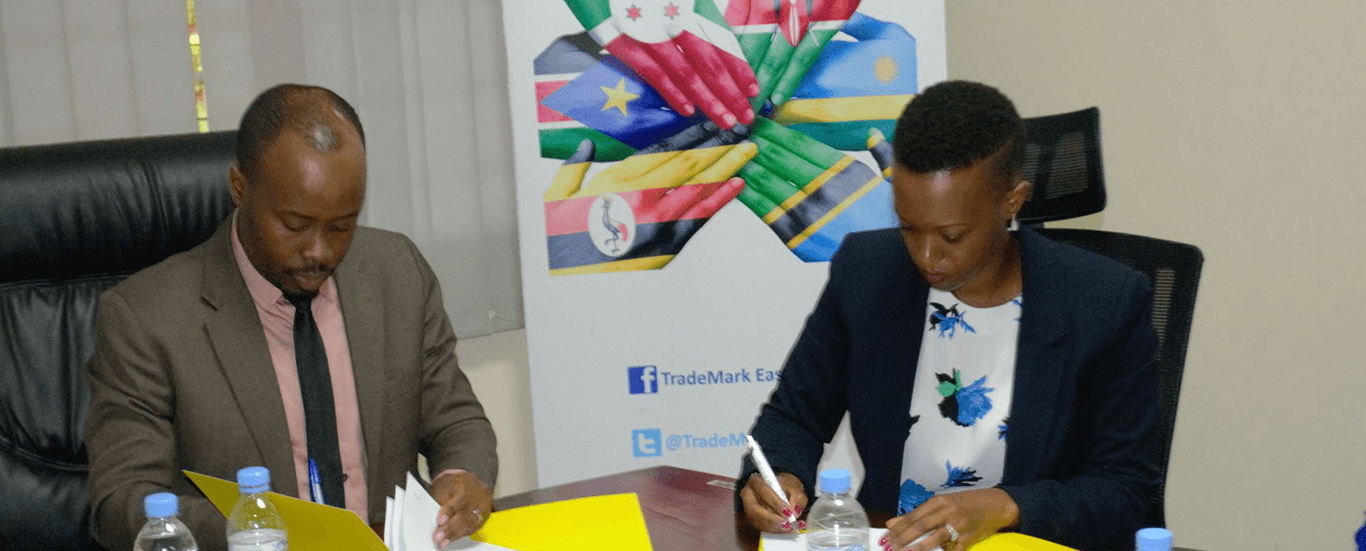TradeMark Africa (TMA) today committed to fund Rwanda Standards Board (RSB) with US$ 1 Million in support of projects that will enhance food safety and trade. The new interventions will benefit farmers, pack houses, feed millers and feed transporters who will be enabled to attain international sanitary and phytosanitary standards (SPS) requirements in food safety of local agricultural products; enabling them to access a wide range of markets within the region and internationally. The announcement was made during the signing of a financing agreement between the two organizations, held this afternoon in Kigali. The United States Agency for International Development (USAID) has provided funding through TMA. RSB and TMA say the interventions, which will be implemented over the next 4 years, will range from automation of RSB processes to improve service delivery and increase customer satisfaction, to development of a 7 year strategic plan that will guide RSB in keeping up with global best practice in standards and SPS measures, to upgrading certification schemes to reach advanced standards. The agreement with RSB is part of TMA’s US$ 50 Million programme with the government of Rwanda (GoR) that aims to support interventions that will improve the country’s competitiveness through investments in key sectors, of which agriculture is one. Agriculture is the main economic activity in Rwanda that accounts for 33% of the GDP, and within which 70% of the population engages in. Around 72% of the working population is employed in agriculture, making it a critical intervention area for TMA in...
TMA and RSB partner to enhance food safety and trade
Posted on: April 2, 2019
Posted on: April 2, 2019
















